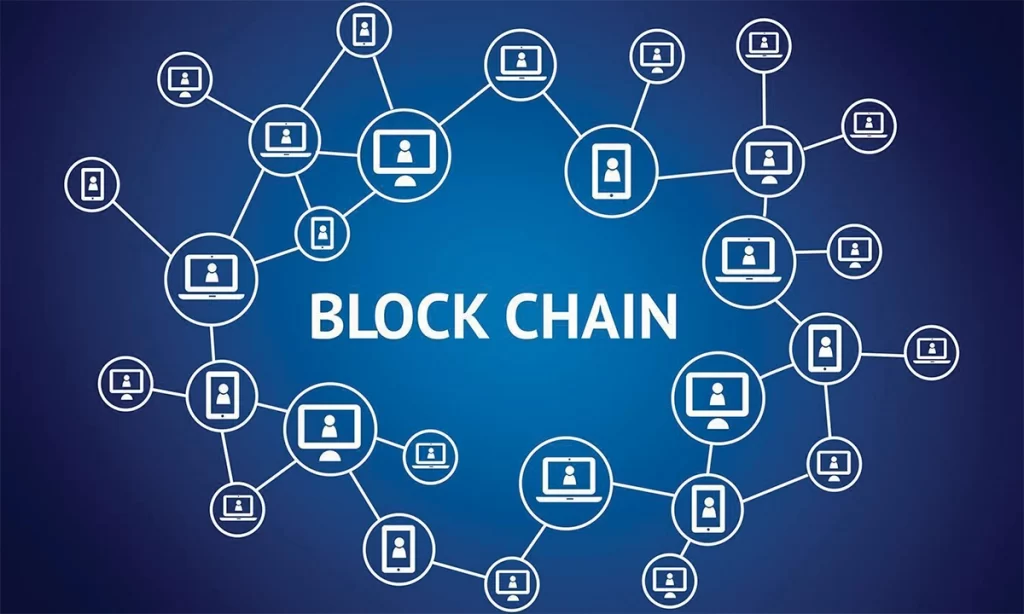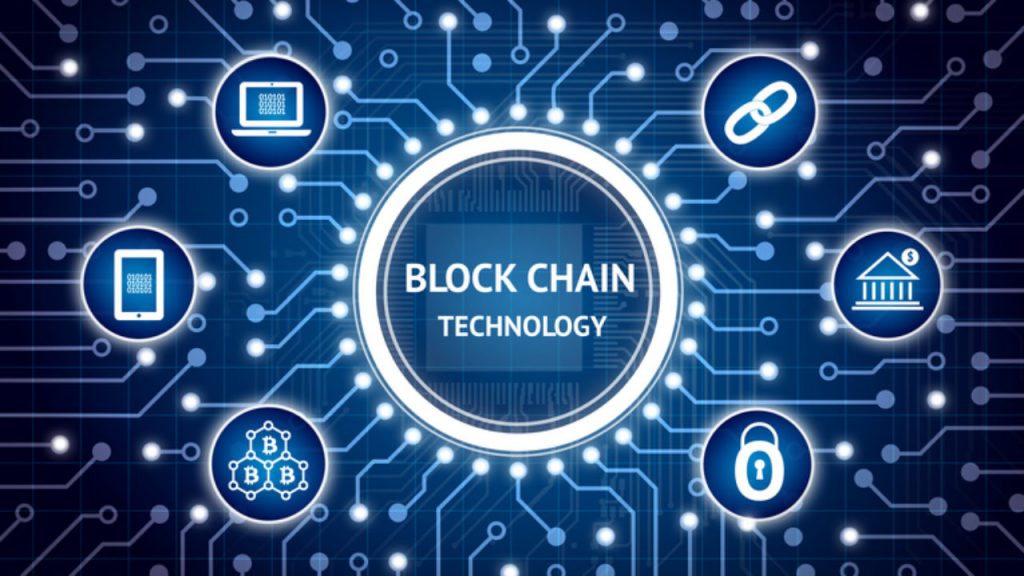Technology
BlockChain: Overview – Benefits of Blockchains, Its Pros And Cons And Conclusion
Blockchain is essentially a procedure used to keep up with record of data and because of its circulation, it gets difficult to change or hack the framework.

Blockchain is essentially a procedure used to keep up with record of data and because of its circulation, it gets difficult to change or hack the framework. Blockchain is no question the genuine illustration of current innovation attempting to its maximum capacity.
In easier words, blockchain is a chain of blocks that have data. The innovation ensures that it becomes difficult to treat the data using any and all means.
Blockchain is the primary innovation behind bitcoin. All bitcoin is a computerized coin and blockchain is the book that monitors its proprietors.
Architecture
As we definitely know blockchain is the chain of blocks that stores the necessary data. The primary block in the blockchain is called Beginning Block.
Block stores data that is expected by its ongoing use. For instance, a bitcoin block will store source, beneficiary, and sum data.
A block likewise has a special distinguishing proof called a Hash. Subsequently, at whatever point a block is made a hash is produced for that block, and at whatever point the information is changed the hash likewise recovers.
Hash is fundamentally a remarkable worth that can never go back. It’s like a human unique finger impression. Human fingerprints can at any point coordinate and the equivalent goes for Hash.
Thus, at whatever point the information of the block is tempered, its hash is likewise different. It implies it turns into a totally new block when information is tempered. Presently, every one of the blocks become invalid because of changes brought about by a solitary block.

How Are Blockchains Used?
As we currently know, blocks on Bitcoin’s blockchain store information about money related exchanges. Today, there are in excess of 10,000 other cryptographic money frameworks running on blockchain. Yet, it would seem blockchain is really a solid approach to putting away information about different sorts of exchanges too.
A few organizations that have previously consolidated blockchain incorporate Walmart, Pfizer, AIG, Siemens, Unilever, and a large group of others. For instance, IBM has made its Food Trust blockchain to follow the excursion that food items take to get to their areas.
Banking and Finance
Maybe no industry stands to profit from incorporating blockchain into its business activities more than banking. Monetary establishments just work during business hours, typically five days per week. That implies on the off chance that you attempt to store a beware of Friday at 6 p.m., you will probably need to hold on until Monday morning to see that cash hit your record. Regardless of whether you put aside your installment during business hours, the exchange can in any case require one to three days to check because of the sheer volume of exchanges that banks need to settle. Blockchain, then again, never dozes.
Healthcare
Medical services suppliers can use blockchain to store their patients’ clinical records safely. At the point when a clinical record is produced and marked, it tends to be composed into the blockchain, which furnishes patients with the verification and certainty that the record can’t be changed. These individual wellbeing records could be encoded and put away on the blockchain with a confidential key, so they are just open by specific people, in this way guaranteeing protection.
Property Records
Assuming you have at any point invested energy in your nearby Recorder’s Office, you will realize that the most common way of recording property freedoms is both troublesome and wasteful. Today, an actual deed should be conveyed to an administration worker at the neighborhood recording office, where it is physically placed into the district’s focal information base and public file. On account of a property question, cases to the property should be accommodated with the public record.
This cycle isn’t simply expensive and tedious — it is likewise inclined to human blunder, where every error makes following property possession less productive. Blockchain can possibly dispose of the requirement for examining reports and finding actual documents in a neighborhood recording office. Assuming property proprietorship is put away and confirmed on the blockchain, proprietors can believe that their deed is exact and forever recorded.
Smart Contracts
A brilliant agreement is a PC code that can be incorporated into the blockchain to work with, confirm, or arrange an agreement understanding. Savvy contracts work under a bunch of conditions to which clients concur. At the point when those conditions are met, the particulars of the understanding are naturally done.
Supply Chains
As in the IBM Food Trust model, providers can utilize blockchain to record the starting points of materials that they have bought. This would permit organizations to check the credibility of their items as well as normal names, for example, “Natural,” “Neighborhood,” and “Fair Exchange.”
Voting
As referenced above, blockchain could be utilized to work with a cutting edge casting a ballot framework. Casting a ballot with blockchain conveys the possibility to dispose of political race misrepresentation and lift elector turnout, as was tried in the November 2018 midterm decisions in West Virginia. Utilizing blockchain in this way would make casts a ballot almost difficult to alter. The blockchain convention would likewise keep up with straightforwardness in the discretionary cycle, decreasing the staff expected to direct a political decision and furnishing authorities with almost moment results. This would wipe out the requirement for relates or any genuine worry that misrepresentation could compromise the political race.

Benefits of Blockchains
Accuracy of the Chain
Exchanges on the blockchain network are endorsed by an organization of thousands of PCs. This eliminates practically all human association in the confirmation cycle, bringing about less human mistake and a precise record of data. Regardless of whether a PC on the organization were to commit a computational error, the mistake would simply be made to one duplicate of the blockchain. For that mistake to spread to the remainder of the blockchain, it would should be made by something like 51% of the organization’s PCs — a close to difficulty for an enormous and developing organization the size of Bitcoin’s.
Cost Reductions
Normally, purchasers pay a bank to confirm an exchange, a legal official to sign a report, or a clergyman to play out a marriage. Blockchain takes out the requirement for outsider confirmation — and, with it, their related expenses. For instance, entrepreneurs cause a little charge at whatever point they acknowledge installments utilizing Visas, since banks and installment handling organizations need to deal with those exchanges. Bitcoin, then again, doesn’t have a focal power and has restricted exchange charges.
Decentralization
Blockchain doesn’t store any of its data in a focal area. All things considered, the blockchain is replicated and spread across an organization of PCs. Whenever another block is added to the blockchain, each PC on the organization refreshes its blockchain to mirror the change. By spreading that data across an organization, as opposed to putting away it in one focal data set, blockchain turns out to be more challenging to mess with. If a duplicate of the blockchain fell under the control of a programmer, just a solitary duplicate of the data, instead of the whole organization, would be compromised.
Efficient Transactions
Exchanges set through a focal authority can require up to a couple of days to settle. In the event that you endeavor to store a keep an eye on Friday night, for instance, you may not really see subsidizes in that frame of mind until Monday morning. While monetary establishments work during business hours, normally five days every week, blockchain is working 24 hours per day, seven days per week, and 365 days per year. Exchanges can be finished in just 10 minutes and can be viewed as secure after only a couple of hours. This is especially helpful for cross-line exchanges, which ordinarily take significantly longer due to time region issues and the way that all gatherings should affirm installment handling.
Private Transactions
Numerous blockchain networks work as open information bases, implying that anybody with a Web association can see a rundown of the organization’s exchange history. In spite of the fact that clients can get to insights concerning exchanges, they can’t get to recognizing data about the clients making those exchanges. It is a typical misperception that blockchain networks like bitcoin are mysterious, when truth be told they are just classified.
At the point when a client makes a public exchange, their novel code — called a public key, as referenced prior — is recorded on the blockchain. Their own data isn’t.
Secure Transactions
When an exchange is recorded, its credibility should be confirmed by the blockchain network. Huge number of PCs on the blockchain race to affirm that the subtleties of the buy are right. After a PC has approved the exchange, it is added to the blockchain block. Each block on the blockchain contains its own remarkable hash, alongside the interesting hash of the block before it. At the point when the data on a block is altered in any capacity, that block’s hash code changes — nonetheless, the hash code on the block after it wouldn’t. This disparity makes it incredibly challenging for data on the blockchain to be changed without notice.
Transparency
Most Blockchains are completely open-source programming. This implies that everybody can see its code. This empowers examiners to audit digital currencies like Bitcoin for security. This likewise intends that there is no genuine expert on who controls Bitcoin’s code or the way in which it is altered. Along these lines, anybody can recommend changes or moves up to the framework. Assuming a larger part of the organization clients concur that the new variant of the code with the overhaul is sound and advantageous, then, at that point, Bitcoin can be refreshed.
Banking the Unbanked
Maybe the most significant feature of blockchain and Bitcoin is the capacity for anybody, paying little mind to identity, orientation, or social foundation, to utilize it. As per The World Bank, an expected 1.7 billion grown-ups don’t have financial balances or any method for putting away their cash or abundance. Essentially these people live in agricultural nations, where the economy is in its earliest stages and completely reliant upon cash.
These individuals frequently bring in a little cash that is paid in actual money. They then, at that point, need to store this actual money in secret areas in their homes or different spots of residing, leaving them subject to burglary or superfluous brutality. Keys to a bitcoin wallet can be put away on a piece of paper, a modest phone, or even retained if essential. For a great many people, almost certainly, these choices are more effortlessly concealed than a little heap of money under a bedding.

Pros and Cons of Blockchain
For its intricacy, blockchain’s all’s true capacity as a decentralized type of record-keeping is nearly unbounded. From more noteworthy client protection and increased security to bring down handling expenses and less blunders, blockchain innovation might just see applications past those framed previously. In any case, there are additionally a few drawbacks.
Pros
• Further developed precision by eliminating human contribution in check
• Cost decreases by disposing of outsider check
• Decentralization makes it harder to alter
• Exchanges are secure, private, and effective
• Straightforward innovation
• Gives a financial other option and a method for protecting individual data for residents of nations with unsound or immature states
Cons
• Huge innovation cost related with mining bitcoin
• Low exchanges each second
• History of purpose in illegal exercises, like on the dim web
• Guideline differs by purview and stays unsure
• Information capacity limits
Conclusion
As a significant arising innovation, blockchain will assume a part in many fields. Accordingly, we accept that the issues connected with business utilizations of blockchain are basic for both intellectual and social practice. We propose a few promising exploration headings. The initial significant exploration bearing is understanding the instruments through which blockchain impacts corporate and market effectiveness. The subsequent potential exploration heading is protection insurance and security issues. The third connects with how to oversee computerized monetary forms and how to manage the cryptographic money market. The fourth potential exploration heading is the way to profoundly coordinate blockchain innovation and fintech. The last point is cross-chain innovation — in the event that every industry has its own blockchain framework, analysts and designers should find better approaches to trade information. This is the way to accomplishing the Web of Significant worth. In this manner, cross-chain innovation will turn into an undeniably significant theme over the long haul.
Organizations can benefit impressively from blockchain innovation. Subsequently, we recommend that the utilization of blockchain be thought about when organizations have the accompanying prerequisites: bookkeeping settlement and crowdfunding, information capacity and sharing, production network the executives, and savvy exchanging.
